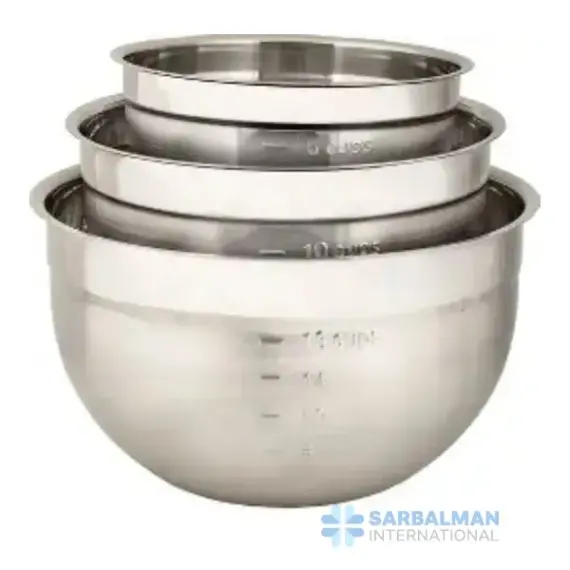Mixing Bowls
Free!
Durable stainless steel mixing bowls for dental labs and clinics. The deep, rounded interior mixes alginate, plaster, and stone smoothly, while the flat base and rolled rim give stable control and neat pouring. Non-reactive steel resists stains and odors, cleans fast, and nests for compact storage. Choose these bowls for consistent mixes, easy hygiene, and long service life on a busy bench.
Description
These stainless steel mixing bowls are reliable, all-purpose containers for dental clinics, laboratories, and workshops. The deep profile and rounded interior make scraping and combining materials smooth and consistent, while the flat base keeps the bowl stable on the bench. Bowls nest to save space and many sets include easy-to-read internal graduations for quick volume checks. Non-reactive stainless steel resists stains, odors, and corrosion, so cleanup is fast and hygiene is simple.
Key features
-
Heavy-gauge, non-reactive stainless steel for durability and cleanliness
-
Rounded interior corners for efficient mixing and easy scraping
-
Flat, steady base with rolled rim for a secure grip and controlled pouring
-
Nesting design to minimize storage space
-
Smooth surface that cleans quickly and supports routine disinfection protocols
-
Available in multiple capacities; optional internal volume marks
Primary benefits
-
Consistent, lump-free mixes with less waste
-
Long service life compared with plastic bowls that scratch or absorb odor
-
Easy sanitation to support good laboratory practice
-
Space-saving storage for busy benches
Common uses and applications
-
Mixing alginate, plaster, and dental stone
-
Holding investment material, pumice, or slurry during model work
-
Combining acrylic monomer and polymer in small batches (use dedicated bowls to avoid cross-contamination)
-
General clinic prep, instrument rinsing, and material staging
How they compare
-
Versus plastic or rubber bowls: stainless steel is tougher, resists odor and staining, and is easier to sanitize. Flexible bowls release set alginate more easily, but steel bowls provide better stability and longevity.
Selection tips
-
Keep separate bowls for gypsum, alginate, and resin work.
-
Choose sizes that match your typical batch volume for accurate, repeatable mixes.




